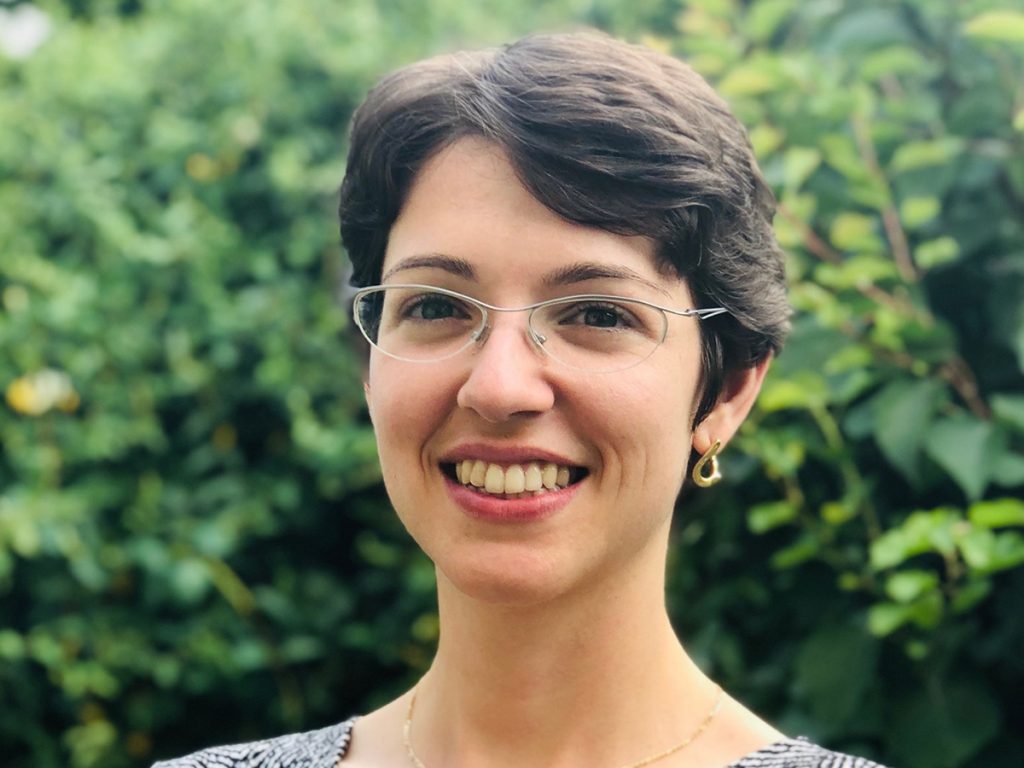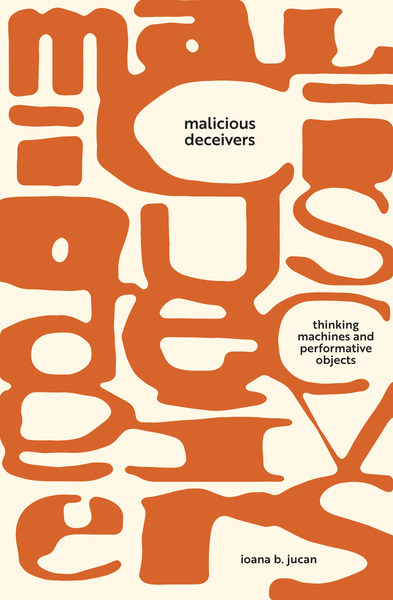Emerson Professor Awarded Callaway Prize for Book on ‘Post-Truth’

Ioana Jucan, an assistant professor with the Marlboro Institute for Liberal Arts and Interdisciplinary Studies, was awarded the New York University 2024 Callaway Prize for the Best Book on Drama, Theatre, and Performance Studies for her book, Malicious Deceivers: Thinking Machines and Performative Objects. The book was published by Stanford University Press in 2023.
The award, given by NYU’s Department of English, grants $9,000 to the best book in the field published in the previous two years.
Brandon Woolf, director of NYU’s program in Dramatic Literature and a clinical associate professor of English, who chaired the committee, praised the scope and impact of Jucan’s work in an NYU press release about the award

“Malicious Deceivers is a stunning, original, and downright adventurous book that examines the conditions of possibility for our ‘post-truth’ moment,” Woolf said.
Read: Jucan Discusses ‘Malicious Deceivers’ in New Book Examining Post-Truth
A scholar and artist, Jucan specializes in the fields of theatre and performance studies, media studies and philosophy. Her current research, informed by decolonial and feminist thought, follows several intersecting threads: the construction of the synthetic real and mechanisms of knowledge, affect, and value production in the age of “post-truth” and big data, as well as more just and sustainable alternatives to toxic capitalist models and mindsets, and creative-critical practices that can help imagine and enact such alternatives.
She also leads the Data Fluencies Theatre Project, which is a part of the Andrew W. Mellon Foundation-funded Data Fluencies Project, and she has also co-authored Algorithmic Authenticity (Meson Press, 2023).
In Malicious Deceivers, Jucan traces a genealogy of post-truth intimately tied to globalizing modernity, and connects the production of repeatable fakeness with capitalism and Cartesian metaphysics. She uses case studies to examine the notion of fakeness through the related logics of dissimulation (deception) and simulation (performativity) as seen with software/AI, television, plastics, and the internet, and how these objects construct impoverished pictures of the world, ensuring a repeatable sameness through processes of hollowing out embodied histories and lived experience.
Last fall, Jucan told Emerson Today she “embarked on this book project in an attempt to understand why we are living in a reality or a system that feels like it is built on, and reproduces, fakeness – where fakeness is part of its mode of operation.
“The book aims to shed light on how fakeness operates and how it structures reality, why, and with what consequences,” she later says. “On the positive side, the book seeks alternative ways of world-making that are more capacious, caring, and careful, and that honor embodied, lived experience and histories.”
Sebastián Calderón Bentin, associate professor of drama at NYU, and a member of the Callaway Prize panel, also praised Malicious Deceivers.
“The book expands the category of performance as a critical lens, both enriching the
field and pushing us to think further about the inherent deceptions of capital as a planetary force and the discursive apparatuses that sustain it,” Bentin said.
Story written by Maira Asaad, MFA ’25 for the Office of Research and Creative Scholarship (ORCS).
Categories